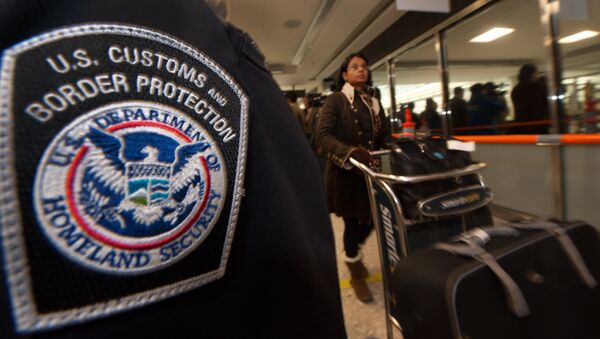Under the new program launched by Customs and Border Protection, select foreign travelers will be asked to disclose their social media activities on platforms including Facebook, Twitter, Google+ and Instagram.
Privacy rights activists have already criticized this development, pointing out that there are currently few guidelines on how such data is used or shared with other agencies.
Eric Vandenburg, prominent cyber security specialist and writer, told Radio Sputnik that while the US government apparently believes that people tend to disclose their social network information freely, some may still consider this new measure as an attempt to violate their privacy.
"The government’s side of things is right now is that people are giving away their social media information to practically everybody… people are handing out information left and right. But that’s not everybody. Some people are much more free with their information than others; and those who are more restrictive, (for them) to feel like they’re obligated to give out their information is a big step," he said.
He also admitted that this initiative will impact certain ethnic and religious groups to a greater extent than others just like in other US government initiatives, digital or otherwise.
"I would say that the Muslim communities would probably be impacted to a greater extent than others because we’ve seen that in other initiatives, that those ethnicities have been targeted.. It’s probably a profiling across the board, but some part of that profiling won’t be used to target certain individuals," he said.
And while databases containing the information collected as part of this new initiative may indeed be vulnerable to hackers, cyber criminals are very unlikely to try and steal something that can be gained with a lot less effort, the cyber security expert pointed out.
"I mean, at this point, if it’s the same information that can be gained by simply spidering social media then it’s not very important. There has to be some sort of combination with some other databases in order for this to be useful information for a hacker," he remarked.
Vandenburg also added that at this point it’s hard to tell whether this new measure can truly be considered some kind of police state intrusion into the private life of ordinary people, and exactly how valuable the information collected this way will turn out to be.




